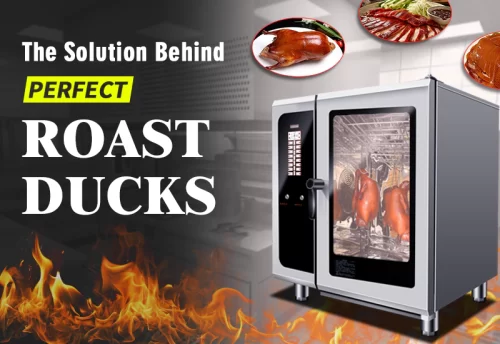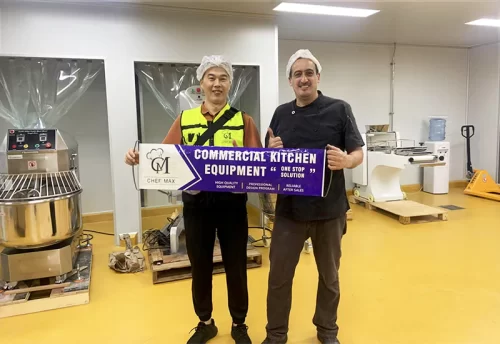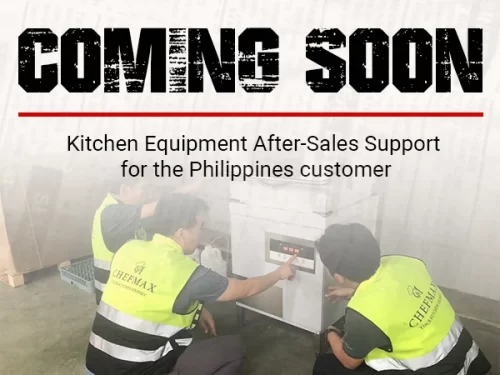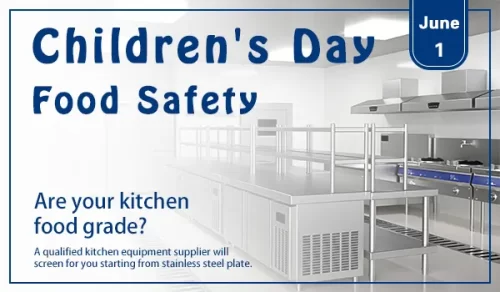Commercial Cooking Equipment Maintenance Guide
Commercial cooking equipment plays a central role in your kitchen, and they are the foundation on which everything starts to run. How to clean and maintain cooking equipment has always been an important proposition during the long and intense use of commercial kitchens, and doing this well can extend the life of the equipment, improve kitchen efficiency, and ensure hygiene and safety.
The importance of maintaining commercial cooking equipment
1. Lower failure rates
We all know how much of an impact a breakdown can have on a commercial kitchen: it could very well mean a big drop in production for the day and your inability to serve food to your customers. Cleaning and inspecting at the end of each day’s business enables you to identify hidden problems in your equipment in a timely manner, such as a crack or a clogged spot. Identifying these problems early on will help prevent and fix commercial cooking equipment in time to keep the business running properly the day after.
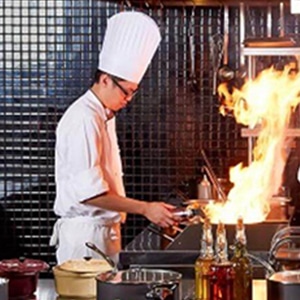
2. Fewer post-production costs
Both repair and energy costs can be kept manageable with proper maintenance. Slowing down the rate of equipment aging means you’ll spend less money on replacing components and upgrading equipment, and the equipment won’t need to use more energy to achieve normal output (aging components can affect the amount of energy used by cooking equipment, and this is more evident with electric type equipment).
3. Food consistency and sanitation
Consistency in food flavor is the most important factor in customer satisfaction. If your grill is put into service without thorough cleaning and maintenance, it is likely to cause sticking and scorching. Hygiene is also an issue, as cooking debris and grease can accumulate in the cracks and corners of the equipment, bringing about bacterial growth.
4. Greater safety and security
Accumulated grease and damaged components are likely to cause a sudden burning accident, and the sudden damage or leakage of commercial cooking equipment in use can also pose a threat to employee safety, while proper maintenance can effectively reduce the probability of these events and protect the safety of the kitchen and operators.
How should I maintain my commercial cooking equipment?
Chefmax shares the main kitchen equipment cleaning and maintenance checklist to protect the equipment based on simple daily cleaning and deep weekly, monthly and quarterly maintenance, which you can list as a table for easy cross-referencing and action.
Commercial ranges:
Commercial ranges are available in gas, electric and electromagnetic types. The gas range is more difficult to maintain than the other types because it has cast iron grilles that are not easy to clean.
For gas ranges
Routine cleaning:
• Promptly clean debris and oil during use to prevent burning and bacterial growth
• Simple daily cleaning of debris from the cast iron grill, dumping and cleaning the debris tray
• Check each burner hole at the end of each day of use to prevent clogging
Intensive maintenance:
• Clean the housing weekly by wiping with warm and soapy water along the grain to prevent rusting
• Remove the grill for deep cleaning weekly, soak it in vinegar or soapy water for 10-15min to soften the adhering debris, then brush it clean with steel wool
• Monthly testing of gas pipes for risk of leakage (apply soapy water to the connections to check for air bubbles)
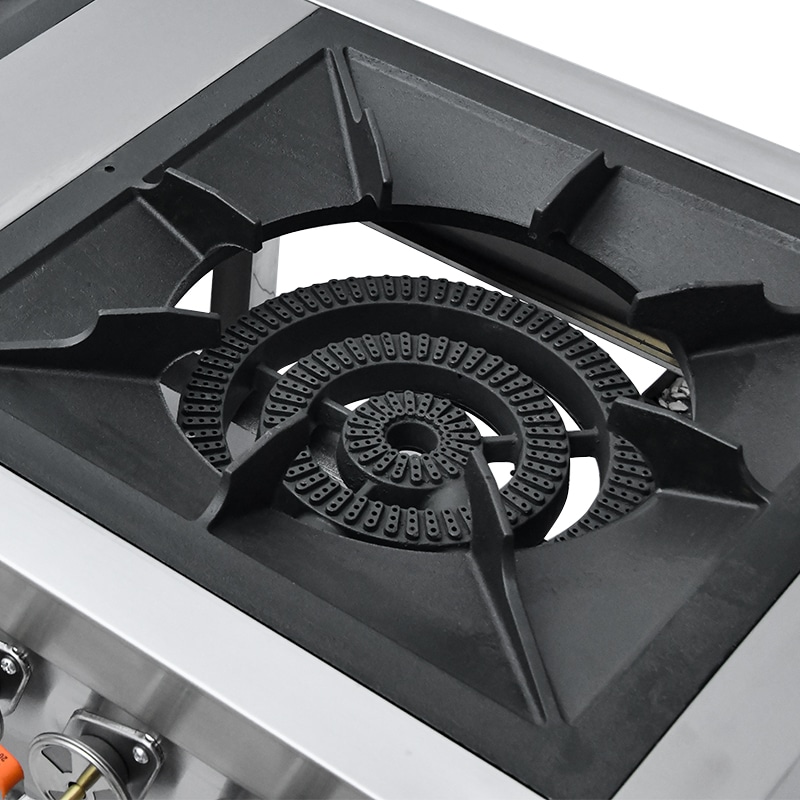
For electric and electromagnetic ranges
• Keep the cooling holes ventilated and cleaned regularly of dust
• Clean the heating panel daily, wipe it clean with a rag and keep it dry
• Remove the unit weekly and clean the bottom and back to maintain a sanitary environment
• Check coils and wires for deterioration every quarter
Commercial ovens:
Cleaning problems that can arise from oven use are food residue occasionally sticking to the interior walls or dripping to the bottom, and odors that may be difficult to remove from the interior. This type of commercial cooking equipment requires more frequent cleaning, preferably a simple cleaning to remove residue after each time a different food is cooked.
Routine cleaning:
• Try to clean the crumbs after each baking session to prevent them from being carbonized
• Wipe crumbs from the interior with a damp cloth daily, when the oven has cooled to a slight residual temperature
• For hard-to-clean carbonized stains, do not scrape off with hard tools, but apply a small amount of non-corrosive cleaner and wait for it to soften.
• Disassemble and clean the oven racks daily by brushing them with a stiff brush
Intensive maintenance:
• For ovens with hot air fans, check for sticky stains, disassemble and clean them weekly
• Clean the gaskets and check the hinges weekly to avoid affecting the seal
• Remove ovens monthly or quarterly to clean dust and crumbs from the bottom and back, which helps ventilate the oven and reduces the chance of fire
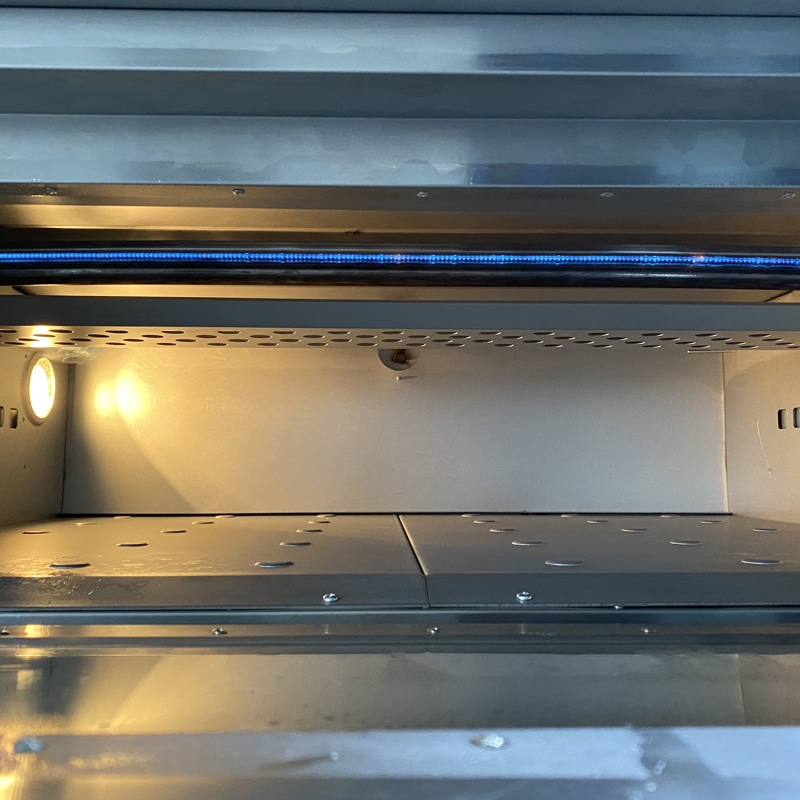
Commercial grill:
Grill cleaning and maintenance is mainly in keeping the heating panel smooth and sanitary. The panel of this type of commercial cooking equipment needs to be cleaned daily, otherwise carbonized debris and burnt smell can easily get into the food and affect the quality of the food.
Routine cleaning:
• Wipe down the grill daily and apply cooking oil to insulate it from air to avoid oxidation and rust
• Dump and clean the crumb drawer daily, dry or air dry and put back in place
• Dust cloth to maintain sanitary condition
Intensive maintenance:
• Season the grill once if it shows signs of blackening or sticking to food
• Check temperature controls monthly for accuracy
• Quarterly inspection of electrical circuits or gas lines and replacement of deteriorated, worn knobs or other components
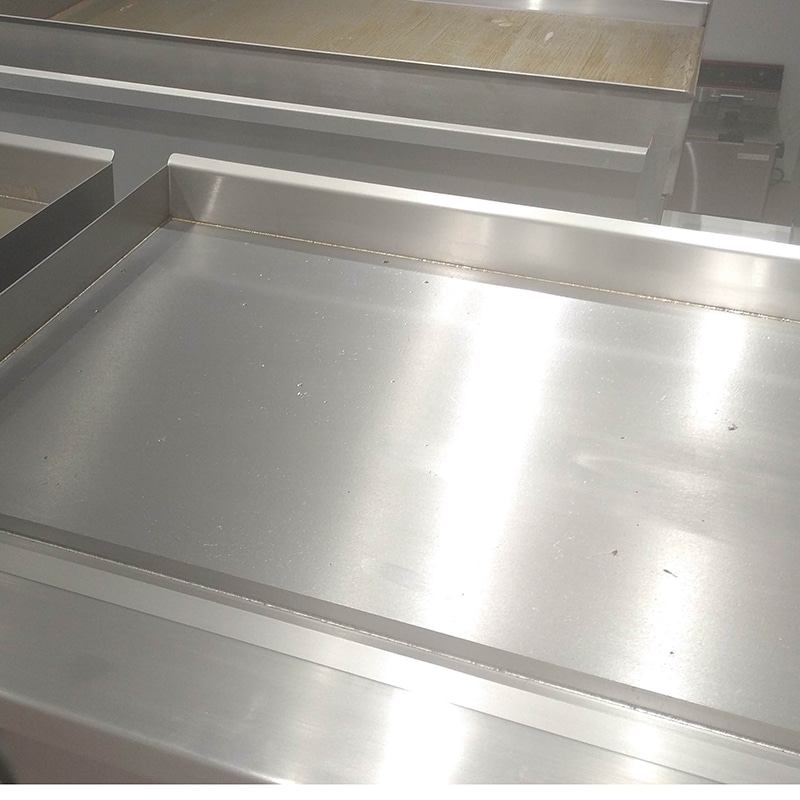
Commercial fryers:
Fryers provide a great crispy crust for your food. Maintaining your fryer requires not only keeping the tank sanitary, but also regular filtering and changing of the cooking oil.
Routine cleaning:
• Cooking oil can be left in the tank overnight, but it needs to be filtered out at the end of each day’s business to remove any impurities adhering to the inside of the tank and put the completed filtered oil back in
• Clean the basket daily and keep it dry
• Keep the interior dry, and then pour in new oil
Intensive maintenance:
• Weekly deep cleaning, in the replacement of each batch of oil thoroughly clean the oil cylinder, drainage pipe, stubborn grease can use vinegar and baking soda to soften
• Remove equipment monthly and clean bottom, back and walls of dirt, debris and grease
• Regularly inspect wiring and piping for deterioration
• Boil thoroughly and disinfect deeply every six months
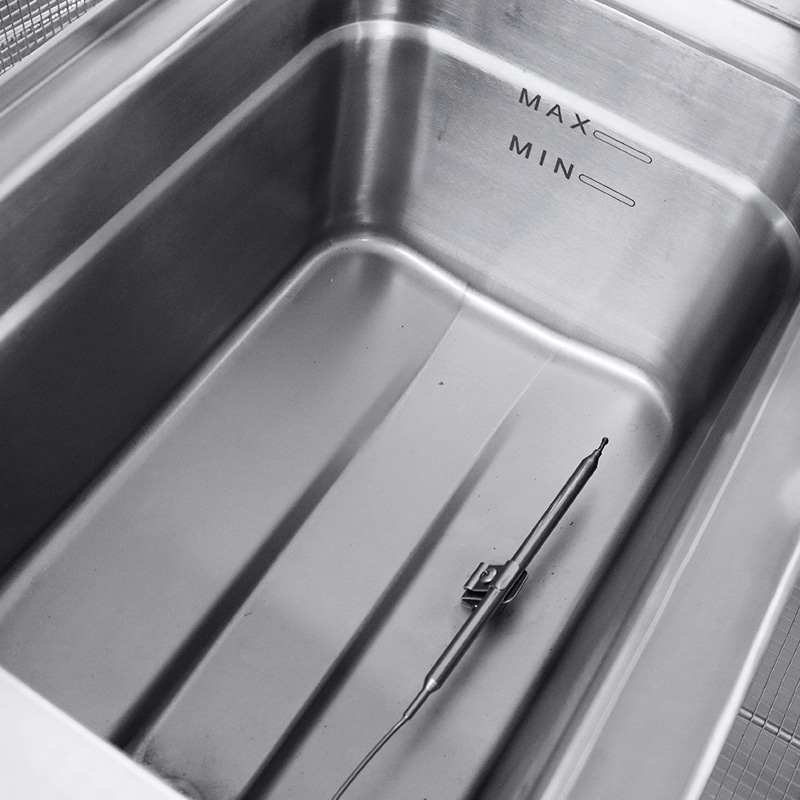
Commercial pasta cookers:
As commercial cooking equipment that professionally cooks pasta, noodles and vegetables, it produces less grease and impurities in use and is relatively easy to clean and maintain.
Routine cleaning:
• Empty the water tank, wipe with a clean damp cloth dampened with water or a small amount of detergent, clean and dry
• For stubborn stains you can use a synthetic abrasive sponge to wipe
• Do not rinse the unit directly with a jet of water as this may cause water to enter the interior
• Make sure there is no salt residue on the bottom of the tank, as this can lead to corrosion
Intensive maintenance:
• Deep clean the equipment casing and drainage pipes weekly, the drainage pipes are easily corroded by salt-laden water
• Regularly check and replace aging wiring and buttons
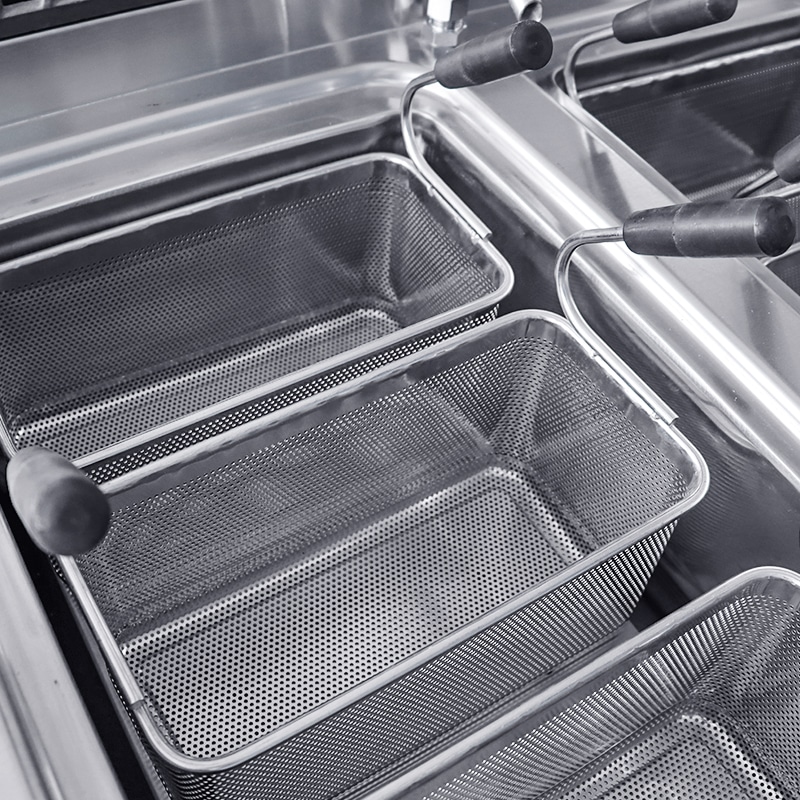
Commercial steamers:
Steamers use steam for cooking and are easier to clean than other commercial cooking equipment, which is similar to an oven but for a wider range of applications. Most steamers and ovens come with a self-cleaning design.
Routine cleaning:
• Thoroughly drain water from the unit and clean the interior of the cabinet and the pan with a damp cloth
• Clean and disinfect the temperature probe
• Be careful not to use too much water on the control panel when cleaning the casing
• Check steam ports for blockages
Intensive maintenance:
• Remove the unit weekly to clean the bottom and back
• Clean hinges and gaskets weekly and check for deterioration
• Periodically check electrical connections
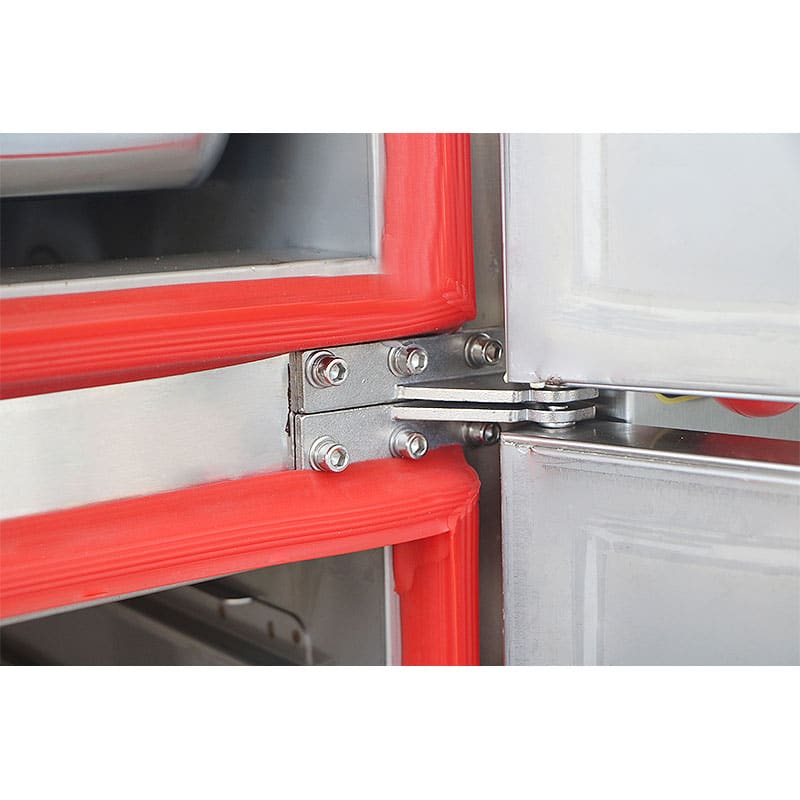
Summary
Better cleaning and maintenance is essential to the operation of your commercial kitchen. The commercial cooking equipment maintenance checklist shared by Chefmax can serve as a reference, and you should also read the instruction manual carefully and leave it to professionals when professional repairs and inspections are involved to protect yourself.
If you need more information on commercial cooking equipment, please contact Chefmax.

























